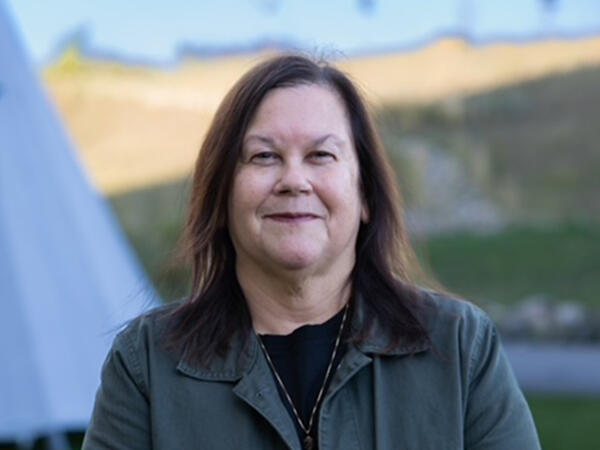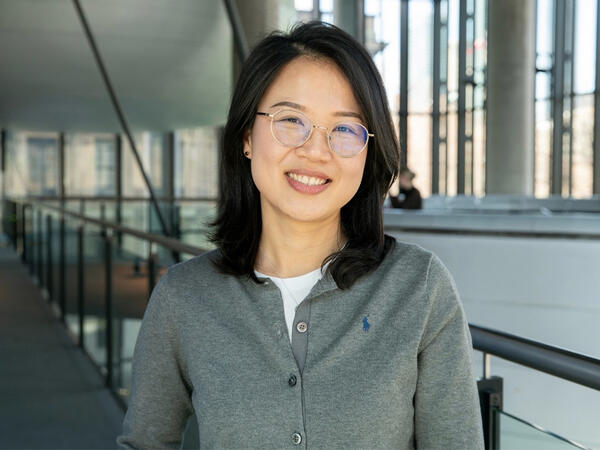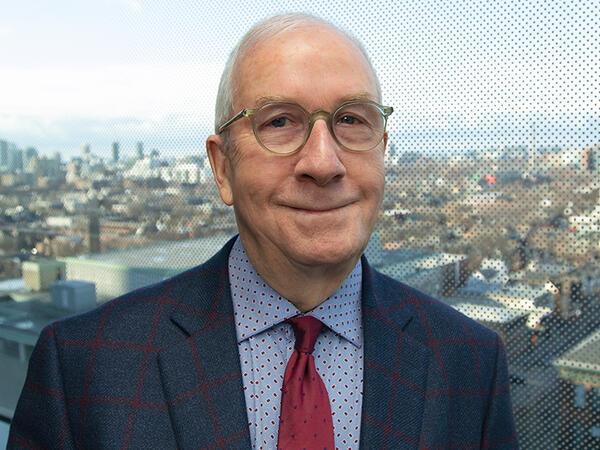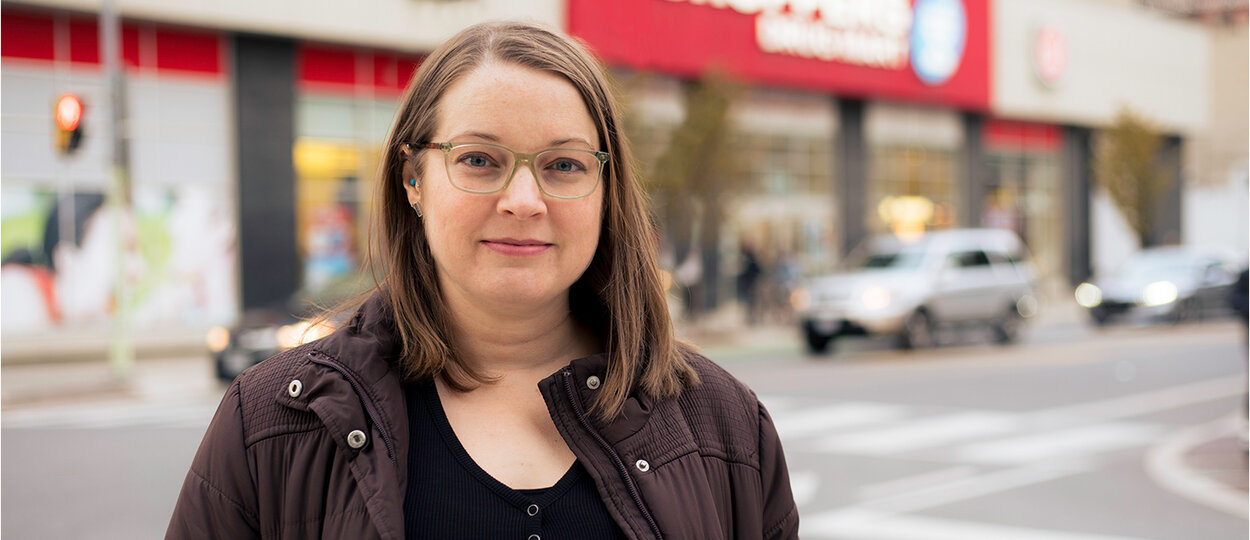Catriona Revell spent months trying to track down her vaccine receipt. Thanks to 2T1 PharmD student Sean Tabarah, her search was over.
How one pharmacy student’s attention solved a months-long patient vaccine record issue
Pharmacists and pharmacy students have helped patients navigate many aspects of their health care throughout the COVID-19 pandemic, providing help when other professionals were not accessible. For Catriona Revell, an ASL interpreter, one pharmacy student’s care and attention helped solve a vaccine record problem that had been going on for months.
Revell received her first COVID-19 vaccine dose in March, but when it was time to book her second dose, she couldn’t access her record through the provincial booking system. She contacted the provincial helpline, Toronto Public Health and the clinic where she got the dose, calling and emailing off-and-on for months, but hadn’t made any headway.
“I called helplines and the health unit, and I tried to get in touch with the clinic where I got my shot, and every time I would hear ‘sorry, we can’t do anything,’” she says. “Everyone seemed convinced that it wasn’t their responsibility.”
By early September, the situation became urgent. Her employer was enforcing a mandatory vaccination policy, and she was at rick of disciplinary action if she couldn’t provide proof of vaccination. And, now several months pregnant, she was at higher risk of complications if she caught COVID-19. She couldn’t wait any longer to get her second dose.
As a last-ditch effort, she began calling pharmacies in downtown Toronto, hoping that the paper receipt she had been given for her first dose would be enough to get her second. But everywhere she called needed to look up her record in the database first – and still no one could find it. She was starting to panic.
“It was so stressful. By this time, I was several months pregnant and it seemed like I might lose my job, and no one seemed to be able to help me – except for Sean,” she says.
Routine pharmacy tasks can “mean the world” to patients
Sean Tabarah, a fourth-year PharmD student at the Leslie Dan Faculty of Pharmacy, had been working at a downtown Shoppers Drug Mart since July for his first APPE rotation. He was near the end of his shift when Revell called and could tell how stressed she was. He patiently listened as she explained the problem, then stayed on the phone with her while he looked for her record.
After about 15 minutes, he finally found it. Two digits in her health card number had been swapped, which made it impossible to search using her health card number alone. But Tabarah knew her record had to be there, and he had the time to try different ways of searching until he found a match.
Revell was relieved and grateful and immediately came to the pharmacy, where Tabarah gave her the second dose and a colleague worked on fixing her record. She says that for days afterward she still couldn’t believe that the problem that had nagged her months was finally over.
“I truly appreciate his time and effort, and his willingness to really listen to what the problem was and try to work through it,” she says. “Obviously that came to a positive result, but either way I would have appreciated his effort.”
Tabarah says he saw helping Revell as a routine part of his job and there was no question that he would do his best.
“In this job, you don’t just shut the door on people,” he says. “It just seemed like the normal day of work for me, but it was a good reminder that even the routine tasks we do make a big difference and mean the world to people.”
Tabarah is now doing a rotation in oncology at Odette Cancer Centre, and he is looking forward to continuing a patient-focused pharmacy career, potentially in remote communities.
“In the pharmacy setting, it feels like there is always a lot to do, but when you help patients, you feel like you’re making progress and it is really rewarding,” he says. “You might be tired, and a patient’s issue might seem like regular business, but you have to remember that someone might have had to muster a lot of courage to come talk to you.”
More News
Image

Pharmacy alum sees change in acceptance of Indigenous cultures in health care
During Deborah Emery’s 40-year pharmacy career, she provided care in Sioux Lookout, Thunder Bay and Manitoulin Island.
Read More
Image

Grad to Watch: Jackie Fule Liu’s research focuses on better outcomes for diabetes patients
A recent PhD graduate, Jackie Fule Liu combines hands-on skill and big-picture thinking to help tackle diabetes care challenges.
Read More
Image

U of T community members recognized with Order of Canada
Congratulations to Dean Emeritus and Professor K. Wayne Hindmarsh on his appointment.
Read More
